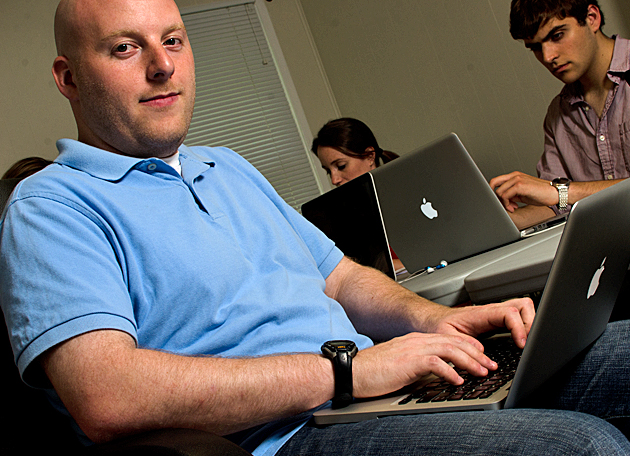
Most law students spend their first years obsessing over torts outlines and scurrying to line up summer internships.
But that wasn’t the style of Ben Smilowitz, AB ’03.
In 2007, by the end of his first year in law school at the University of Connecticut, the West Hartford native was starting Disaster Accountability Project, a nonprofit to help countless disaster survivors across the globe. From lobbying advocacy to fundraising, Smilowitz and his team of volunteers have worked tirelessly since then to improve disaster management systems.
From lobbying advocacy to fundraising, Smilowitz and his team of volunteers have worked tirelessly since [Hurricane Katrina] to improve disaster management systems.
After a stint volunteering in Mississippi following Hurricane Katrina, Smilowitz realized more needed to be done.
“I saw so many breakdowns in aid services that led to unnecessary suffering,” Smilowitz says.
“Nurses were flown in from all over the country, yet they were not licensed to practice in the state. Relief checks for $360 were written out for each survivor, yet there were no banks to go to, so people would just head to pawn shops. Meanwhile, kids around the country were emptying their piggy banks trying to help, and that money wasn’t really helping people.”
Noticing the lack of an independent watchdog for disaster relief, Smilowitz decided to take action into his own hands. Soon after, he began reaching out for volunteers to help with research and fundraising. Assistance came from all over. In fact, the project’s initial website was designed by someone in South Africa. Over the years, hundreds of people have volunteered with the project, Smilowitz says. In 2008, Smilowitz received a competitive Echoing Green Fellowship for social entrepreneurs tackling major social issues.
The organization improves disaster management in three key ways: (1) A ”relief oversight” initiative educates donors to ultimately maximize the impact of donations; (2) advocacy efforts help ensure everyone in a community is included in disaster planning, so no one is left behind when disasters occur; and (3) a “policy wiki” tracks the implementation of post-disaster policy recommendations to make sure mistakes are not repeated and systems improve.
Smilowitz suggests there are myriad other ways to improve disaster relief and lessons ought to be learned from one disaster to the next. After the earthquake in Haiti, for example, Smilowitz and company analyzed 197 organizations that sought donations, and they produced a report on the transparency of these nonprofits to show what these organizations were doing with donations.
“Once Anderson Cooper leaves, there’s no political will to keep these issues on the front burner,” Smilowitz says.
Therefore, it’s critical for the public to stay involved. If people are not constantly putting pressure on organizations and political higher-ups after a disaster stops receiving regular media coverage, gaps go unnoticed and suffering can increase, Smilowitz laments.
“I feel lucky that I can spend my time having a meaningful impact and doing work that I feel good about.”
— Ben Smilowitz, AB ’03
“We still haven’t learned many of the lessons of Katrina,” he says. Smilowitz cites an over-reliance on unskilled disaster relief volunteers, outdated emergency plans, and the failure of many states to fix the legal glitches that prevent out-of-state nurses from assisting during disasters.
Although Smilowitz’s organization operates with a rather small budget and is staffed mostly by volunteers, it is having a vast impact.
In fact, the non-stop efforts of Smilowitz and company led to the creation of a senior staff position at FEMA to ensure relief is accessible to all. Many people with disabilities are largely overlooked in disaster relief. A member of Disaster Accountability Project’s board was ultimately selected to fill the FEMA position.
When asked about his unusual career path, Smilowitz says, “I feel lucky that I can spend my time having a meaningful impact and doing work that I feel good about.”
Andrew Clark is a freelance writer based in Brockton, Mass.
For more information on Disaster Accountability Project or to get involved, contact Smilowitz at Ben@disasteraccountability.org, or visit www.disasteraccountability.org.